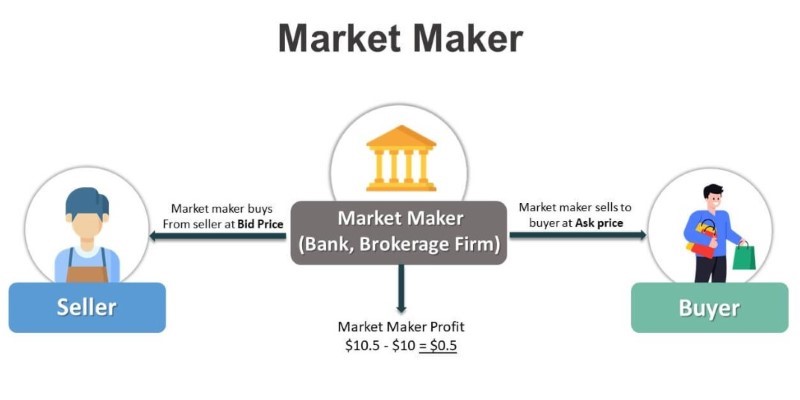In financial markets, information is everything. Investors and traders closely monitor every news item, report, and corporate update to predict market movements. One phenomenon that encapsulates the market's quick response to new information is the "announcement effect." This term refers to the immediate impact that newswhether it be an earnings report, a government policy change, or a corporate acquisitionhas on asset prices.

Understanding the announcement effect is crucial for investors, as it not only drives short-term market reactions but also reflects the broader sentiment and expectations of market participants. This article explores the announcement effect, delving into its causes, implications, and how investors can navigate its complexities.
The announcement effect occurs when the stock market or other financial markets react swiftly to new information. This reaction can be observed in stock prices, trading volumes, and volatility. The effect is rooted in the efficient market hypothesis (EMH), which suggests that prices immediately adjust to new information. For instance, when a company announces better-than-expected earnings, its stock price might jump, reflecting the markets reassessment of the companys value.
However, not all announcements have the same level of impact. The significance of the news, the surprise factor, and the markets overall mood all play a role in determining the extent of the announcement effect. For example, a pre-announced merger might only lead to a mild stock movement compared to an unexpected regulatory crackdown that could cause dramatic price swings.
Different types of announcements carry varying degrees of influence on markets. Here are some common categories:
Investors closely watch quarterly earnings reports. Companies that beat earnings expectations often see their stock prices rise immediately, while those that miss estimates may experience a drop. The announcement effect here is a direct reflection of investor sentiment based on new financial data.
Reports on GDP growth, inflation, employment figures, and interest rates significantly influence the broader market. For example, a stronger-than-expected GDP report can boost stock indices, signaling a robust economy, while disappointing employment data might trigger sell-offs.

News of mergers, acquisitions, or divestitures tends to create substantial volatility. If investors believe the acquiring company is overpaying, the acquiring company's stock might drop, while the target company usually experiences a price surge due to the acquisition premium.
Government decisions, such as changes in tax policies, interest rates, or trade agreements, can have far-reaching effects on the market. For example, a sudden increase in interest rates could lead to a broad sell-off in equities, reflecting concerns over borrowing costs and economic slowdown.
Companies sometimes provide forward guidance or adjust their dividend payouts. Positive guidance or a dividend hike typically boosts investor confidence, while cuts can lead to a negative market reaction.
The impact of an announcement on financial markets can vary significantly based on several key factors. These elements help explain why some announcements cause sharp price movements while others have a muted effect.
The most critical driver is how the news aligns with market expectations. If an announcement meets predictions, the reaction tends to be limited. However, significant deviationswhether positive or negativecan trigger sharp price movements. The bigger the surprise, the larger the market reaction.
The overall market mood plays a significant role. In a bullish environment, positive news tends to amplify gains, while negative news might be downplayed. Conversely, in bearish markets, even minor setbacks can lead to significant sell-offs.
Timing matters. Announcements during periods of high market volatility or uncertainty can have an exaggerated impact. Broader economic conditions, seasonal factors, and the timing relative to other events also influence how markets react.
Announcements that correct or challenge existing beliefs tend to have a stronger effect. If new information reduces uncertainty or reveals insights not widely known, markets may adjust quickly and sharply.

Assets with high liquidity and deep market participation typically experience less volatility as large trades are absorbed more smoothly. Low-liquidity assets, on the other hand, can see more exaggerated price swings due to fewer buyers and sellers.
Retail investors often react more emotionally than institutional investors. Cognitive biases like overreaction, herd behavior, and anchoring can amplify the announcement effect, especially in markets dominated by individual traders.
For investors, navigating the announcement effect requires a balanced approach. Reacting impulsively to news can be risky, as initial price movements might not fully reflect the long-term implications of the announcement. Instead, its often better to wait for the dust to settle before making investment decisions. Here are some strategies investors can consider:
Focus on Fundamentals: While short-term traders might capitalize on announcement-driven volatility, long-term investors should focus on the underlying fundamentals. For instance, instead of reacting to a single earnings miss, its better to evaluate the companys broader business prospects and industry trends.
Use Technical Analysis: For those trading based on the announcement effect, technical indicators can help identify entry and exit points. Patterns like price gaps, volume spikes, and relative strength can offer clues about whether a price movement is likely to be sustained or reversed.
Diversify to Manage Risk: The announcement effect can lead to sector-wide reactions. Diversifying across multiple sectors and asset classes can help mitigate the impact of sudden news-driven volatility on a single stock or sector.
The announcement effect is a powerful force in financial markets, driving sharp price movements in response to new information. While it presents opportunities for quick gains, it also comes with risks, especially for those who react impulsively. By understanding the factors that influence the announcement effect and incorporating strategies that balance short-term reactions with long-term objectives, investors can better navigate the often unpredictable nature of financial markets.
Ultimately, while market announcements will always trigger reactions, disciplined investors who focus on fundamentals and take a measured approach are more likely to achieve consistent success over time.

By Korin Kashtan/Sep 04, 2024

By Gabrielle Bennett /Sep 04, 2024

By Madison Evans/Sep 04, 2024

By Susan Kelly/Sep 04, 2024

By Isabella Moss/Aug 30, 2024
By Martina Wlison/Sep 04, 2024

By Maurice Oliver/Aug 30, 2024

By Darnell Malan/Sep 04, 2024

By Vicky Louisa/Sep 04, 2024

By Triston Martin/Sep 04, 2024

By Madison Evans/Aug 29, 2024

By Sean William/Sep 03, 2024